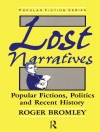In ‘The Complete Essays, Literary Studies, Criticism, Cryptography & Autography, ‘ Edgar Allan Poe showcases his multifaceted genius as a writer, critic, and theorist. This collection brings together a diverse array of essays that span the realms of literary critique, aesthetic philosophy, and the burgeoning fields of cryptography and autography. Poe’s literary style is marked by its precision, depth, and often macabre undertones, reflecting the complexities of the human experience and the intricacies of the written word. His critical essays not only dissect contemporary literary works but also formulate theories that would later influence modern literary criticism, bridging the romantic and gothic traditions of his era with emerging American literary identities. Poe, often regarded as the father of the modern short story and a pioneer of detective fiction, drew from his tumultuous personal life and sharp intellect to create a body of work that interrogates the very nature of art and authorship. His experiences with tragedy, loss, and mental anguish imbue his essays with a profound psychological insight, allowing readers to glimpse the mind of a writer grappling with the burdens of creativity and societal expectations. This compelling collection is a must-read for scholars, aspiring writers, and literature enthusiasts alike. It offers invaluable insights into Poe’s literary philosophy and serves as a testament to his enduring influence on American literature. By delving into this volume, readers will not only appreciate the nuances of Poe’s thought but also gain a deeper understanding of the literary culture of the 19th century.
About the author
Edgar Allan Poe (1809-1849) stands among the most influential American writers and is often hailed as a central figure in Romanticism, known for his macabre and gothic tales. An enigmatic genius, Poe’s contribution to the development of the detective story and science fiction genres is seminal. His literary craft is characterized by his keen psychological insights and attention to the darker aspects of the human psyche. ‘The Complete Essays, Literary Studies, Criticism, Cryptography & Autography’ represents a compendium of his critical work, showcasing his intellect across disciplines from literature to cryptography. Poe’s erudition is evident in his critiques, often blending gothic preoccupations with a unique aesthetic theory. His complex relationship with the American literary scene of the Nineteenth Century was underscored by his role as a critic, where he was as likely to praise as he was to excoriate his contemporaries. A tragic figure, Poe’s life was marred by personal losses and struggles with addiction, which imbued his work with a profound sense of melancholy and existential dread. Despite this, or perhaps because of it, his work has endured, testifying to the depth of his vision and his understanding of the intricacies of the human condition. Poe’s narratives are not solely entertainments but elaborate tapestries woven with the threads of human fears and desires, a legacy that cements him in the pantheon of American letters.












